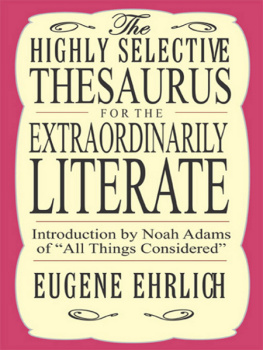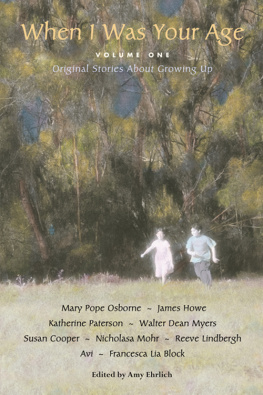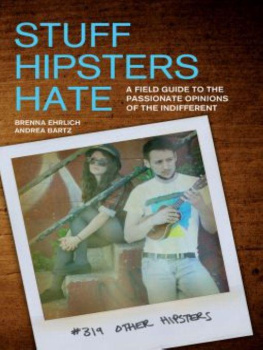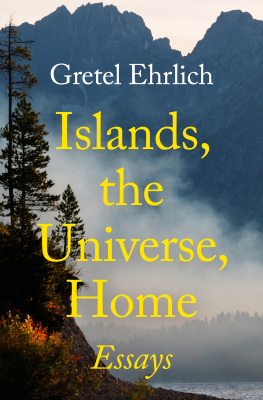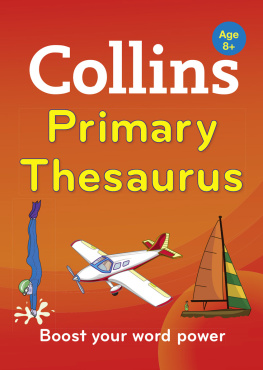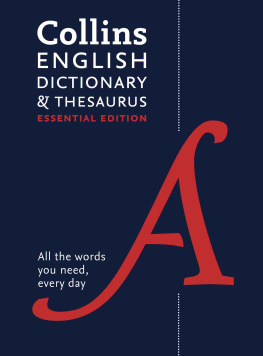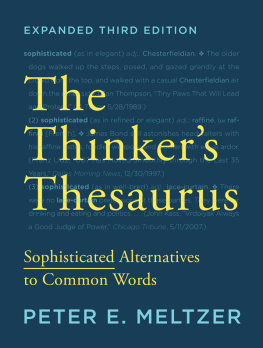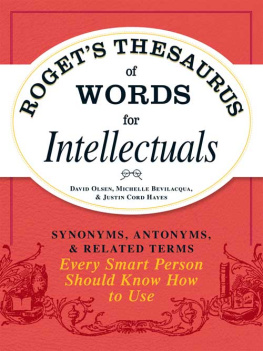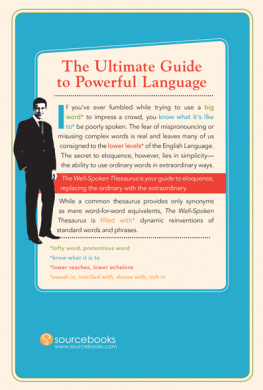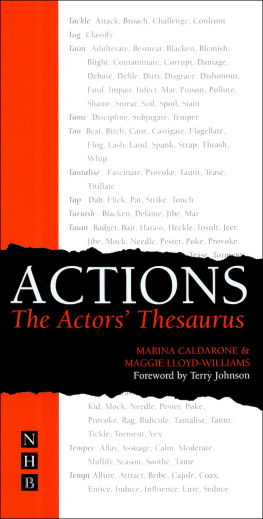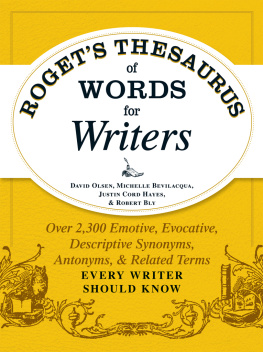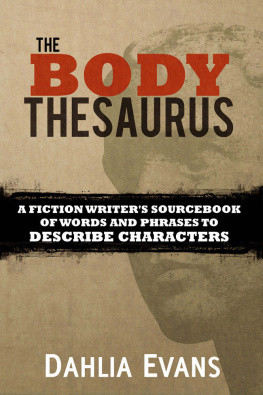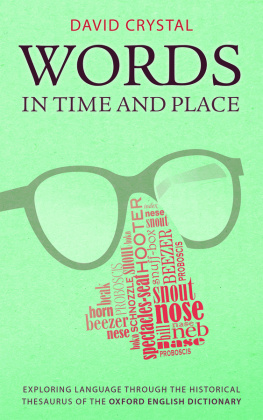To my dear wife, Norma, who helped directly in the compilation of this book and continues to give unstinting support and wise counsel.
When I was a City College freshman, voice as yet unchanged, I made the mistake of registering for a senior-level course in American literature. Imagine my consternation when I found myself the lone boy sitting in an enormous lecture hall with 299 other seats filled by men . Professor William Bradley Otis, a mythic figure to generations of CCNY students who saw Faulkner and Hemingway as their true heroes, was our lecturer. Doc Otis tried to be nice. Whenever he noticed me he would ask, How are you today, sonny? Everyone else would guffaw.
I never missed a class and was rewarded by learning an important lesson, one that had nothing to do with American literature. It couldn't have been otherwise. Doc Otis never even mentioned literature during the entire term. What I learned from Otis was the secret of success in the adult world. It happened this way. One day, during one of the fifteen-week, three times a week digressions that constituted his enormously popular lectures, Otis used the word indigenous , whereupon a student sitting near me called out, Doc, what does indigenous mean? You don't know? I can't believe it, said Otis.
Jack, he said, pointing to a burly student to his left, Tell this ignorant basketball player what indigenous means. The reply came back immediately: Autochthonous . And Otis went on with the story he was telling. As for me, I heard not a single word more from then until the bell rang for the end of the lecture and I had to run off to another class. But that brief exchange proved more meaningful to me than any of the hundreds of literary works I read as an English major. It gave me one of the secrets of lifenever say indigenous when you can say autochthonous .
At home that fateful night, with the help of our family dictionary, I launched a collection of uncommon words I felt impelled to learn. My collection grew rapidly and has never stopped growing. I realized that I preferred to expatiate rather than talk , that I engaged in colloquies not discussions , that I partook of collations rather than ate meals , that I could be brusque and churlish rather than gruff , and that I preferred to deprecate rather than deride . Of course, I rarely indulged in such lofty locutions. In my old neighborhoodadjacent to the area in which the play Dead End was setno one got away with speaking this way, and my college instructors for better reasons immediately blue-penciled pretentiousness. Nevertheless, when we wish to characterize people who hate to part with a dollar, we can do more than call them stingy .
How about avaricious, cheese-paring, chinchy, hardfisted, ironfisted, manini, mingy, niggardly, parsimonious , and penurious ? Nothing like having a choice. Many writers and students consider a dictionary and a thesaurus essential elements of their reference shelves. The dictionary enables us to make certain we are using words precisely. The thesaurus, truly a treasury of words, has another function, and one that is equally vital. It stands ready when we know there's a better word to use in a sentence we are writing but cannot bring it to mind. My goal in preparing this work for those who already know more words than they need to know was to help them jog their memories when they are searching for a special word.
I hope that readers who find words here they do not already know will avoid embarrassment by checking such words in their dictionaries before putting them to use. I found it useful to arrange the terms under the relatively common headwords, arranged alphabetically, that readers will have in mind when turning to The Highly Selective Thesaurus for the Extraordinarily Literate . Occasionally, I thought it helpful to supply some terms under more than a single headword. For this I make no apology. I hope my readers will find this book useful and that many of them will suggest additional terms for future editions. Eugene Ehrlich February 1994
The best words bounce and splash, dance and sparkle.
They pucker our mouths, rumble our vocal chords and moisten our eyes. But above all, they satisfy. The correct word slips into its place in a sentence with a solid ker-chunk, much like the sound the final stone makes when it is placed in a farmer's fence. I know that many of the writers I've admired and interviewed would have made good stonemasons. John McPhee of The New Yorker has an especially good eye. As he explains, you don't look for the showy, recondite words, but you come to a place in a sentence where only the right word will do.
Many years ago, as a Time obituary writer, he demonstrated this theory ably when he concluded that a man who had committed suicide by jumping out of a window had died of defenestration . In his Princeton, N.J. office, McPhee keeps several dictionaries at hand to aid him in his search for the right word. Sometimes, he turns to his big one, the OED , such as when he needed a word meaning neat and secure. He found it. Trig .
A playwright once told me that he refused to fit his work into some Procrustean bed, in order to satisfy his critics. I pretended to know the word but as soon as the interview was over, I hurried out of the studio to look it up: Named after Procrustes, a robber in Greek legend, who fitted victims to his bed by stretching them or lopping bits off. And then there was the retired coal miner in Virginia I once interviewed who reintroduced me to a word I took delight in. He told me that an ongoing United Mine Workers strike had him all bumfuzzled. His ancestors, back in the Borders region of England and Scotland, used the same word when they were confused. I onceby accidentmade up a word that I admired.
I was writing about a hornet's nest outside of my house, which I described as being about the size of a basketball, the color of dry leaves, sworls of browns and grays and yellows. When I presented the piece to my editor, the response was: No such word. Let's change it to whorls . And so we did, but to me, sworls still sounds useful as a word which exists in between swirl and whorl . Over the years, we've had several new word contests on All Things Considered, when we ask our listeners to help us fill some odd lexicographical gap. Our most successful endeavor brought us osmyrrah .
I had noticed, in writing about Martha's Vineyard, trying to describe the early morning smell of the sea and the wild roses, that there isn't a word that means a mingling of pleasant aromas. I mentioned this on the air and two hundred listeners sent in their ideas. We chose osmyrrah it's from the Greek osmee , to smell, and smurna , to mingle with. Our winning neologist, Thomas Cowdry of Tucson, Arizona, even imagined how John Milton could have used such a word in Paradise Lost : Trapped so long beneath the surface in darkness thick with sulphur fumes he winced at the brightness as they brought him forth and gasped in the osmyrrah of the living earth. (Milton, in a similar passage, was stuck with smell .) Eugene Ehrlich has been the official judge for the All Things Considered word searches and he's honored the task with enthusiasm and humor. I've always suspected, too, that he likes the treasure-hunting aspect of reading through hundreds of entries: to use a word from The Highly Selective Thesaurus , he would find the boxes of mail we send him diamantiferous .
There are certainly acres of diamonds in this thesaurus. And it's a pleasant search; don't worry about the long ( sesquipedalian ) words, don't fret that you'll be accused of ornamental ( churrigueresque ) usage, or of being abstract ( noetic ) or mysterious ( sibylline ). Such discouragement could only come from a Pecksniff ( person, hypocritically virtuous ). The proper words are collected herethe ones that can fill the empty spaces in our sentences. But once we've built the stone fence, we can leap over it and romp through the fields because the playful words are waiting for us on the other side: spillkin and wambly, callathump, flittermouse, flubdub, funambulist, zugzwang Enjoy. soroban abandoned adj . cade, derelict, profligate abate v . mitigate, palliate, quash abdicate v . abjure, abnegate, demit abject adj . craven, fawning, ignominious able adj . habile abnormal adj . heteroclite, preternatural abnormality n . deuteropathy abolish v . disestablish, extirpate abominable adj . flagitious, odious Abominable Snowman yeti 

